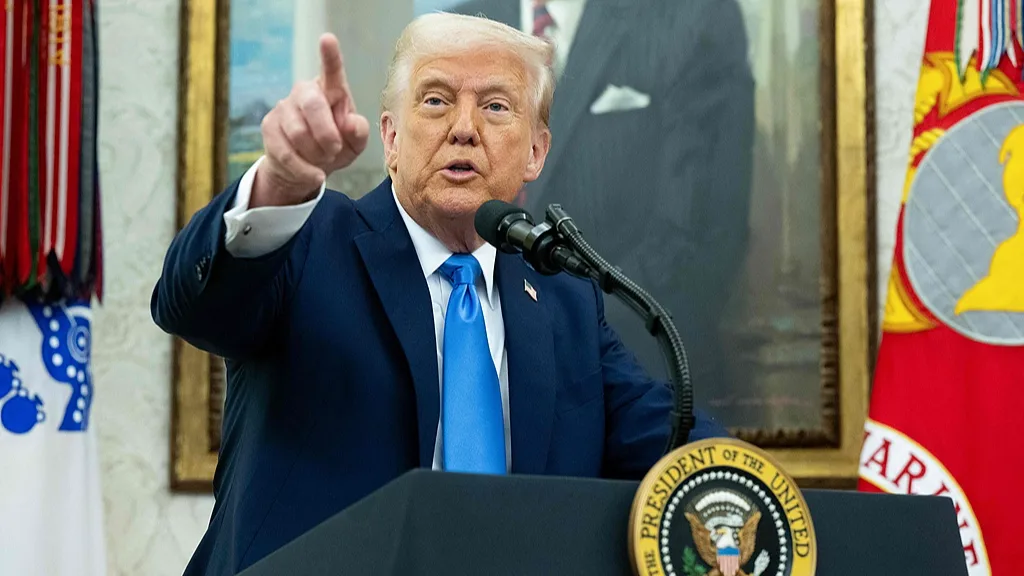WASHINGTON - U.S. President Donald Trump said Sunday he was "angry" with Russian President Vladimir Putin and would impose secondary tariffs of 25 to 50 percent on buyers of Russian oil if he felt Moscow was blocking his efforts to end the conflict in Ukraine.
Trump told NBC News that he was very angry after Putin criticized the credibility of Ukrainian President Volodymyr Zelensky's leadership last week, the television station reported, citing a phone conversation earlier Sunday.
Trump has been trying to broker an end to the Russia-Ukraine conflict since he took office in January. His sharp comments on Sunday about Putin reflect his growing frustration with the lack of progress on the ceasefire.
Trump has also said he could implement the new trade measures within a month, and plans to speak with Putin this week. There was no immediate reaction from Moscow.
On Friday, Putin suggested that some form of interim administration could be put in place in Ukraine to allow for new elections that could oust Zelensky.
Growing pressure to end the conflict
Trump's comments about Putin followed a day-long meeting with Finnish President Alexander Stubb on Saturday during Stubb's surprise visit to Florida.
Stubb's office said on Sunday that he told Trump that a deadline for a Russian-Ukrainian ceasefire to take place needed to be set, and suggested April 20 because Trump will have been in office for three months by then.
U.S. officials have separately pressured Kiev to accept a critical mineral deal, the summary of which shows that Washington has demanded control over revenues from Ukraine's natural resources for years. Zelensky said Kiev's lawyers must review the proposal before he could comment further on the U.S. offer.
In the wake of the US-Ukraine negotiations on a mineral deal, Putin also offered the US a future economic agreement on joint exploration of Russian rare earth metal deposits.
The Izvestia media reported on Monday that Moscow and Washington have started talks on joint rare earth metals and other projects in Russia. It also said that cooperation could be further discussed at the next round of Russian-US talks, which could take place in mid-April in Saudi Arabia.
Trump has been threatening and imposing tariffs on US imports from trade surplus countries since he took office. He has also imposed heavy tariffs on steel, aluminium and cars, hitting key US allies such as Canada and the EU.
According to William Reinsch, a former senior Commerce Department official who now works at the Center for Strategic and International Studies, his latest tariff threats would cause another round of disruption across the US. He said the haphazard way Trump announces and threatens tariffs leaves many questions unanswered, including how U.S. officials can track and prove which countries are buying Russian oil.
Trump set the stage for Sunday's news by imposing a 25 percent secondary tariff last week on U.S. imports from any country that buys oil or gas from Venezuela.
In addition, Trump on Sunday also threatened to hit Iranian oil buyers with secondary sanctions if Tehran fails to reach a deal to end its nuclear weapons programme. Earlier in March, Trump wrote a letter to Iran's Supreme Leader Ayatollah Ali Khamenei warning that Tehran must either agree to new negotiations or face a military confrontation.
Iranian President Massoud Pesekhan said on Sunday that Iran has rejected the possibility of direct talks but is open to indirect negotiations. Pezeshkian stressed that while Iran is not opposed to negotiations in principle, Washington must first correct its past "mistakes" and restore trust.
CMG/gnews.cz



